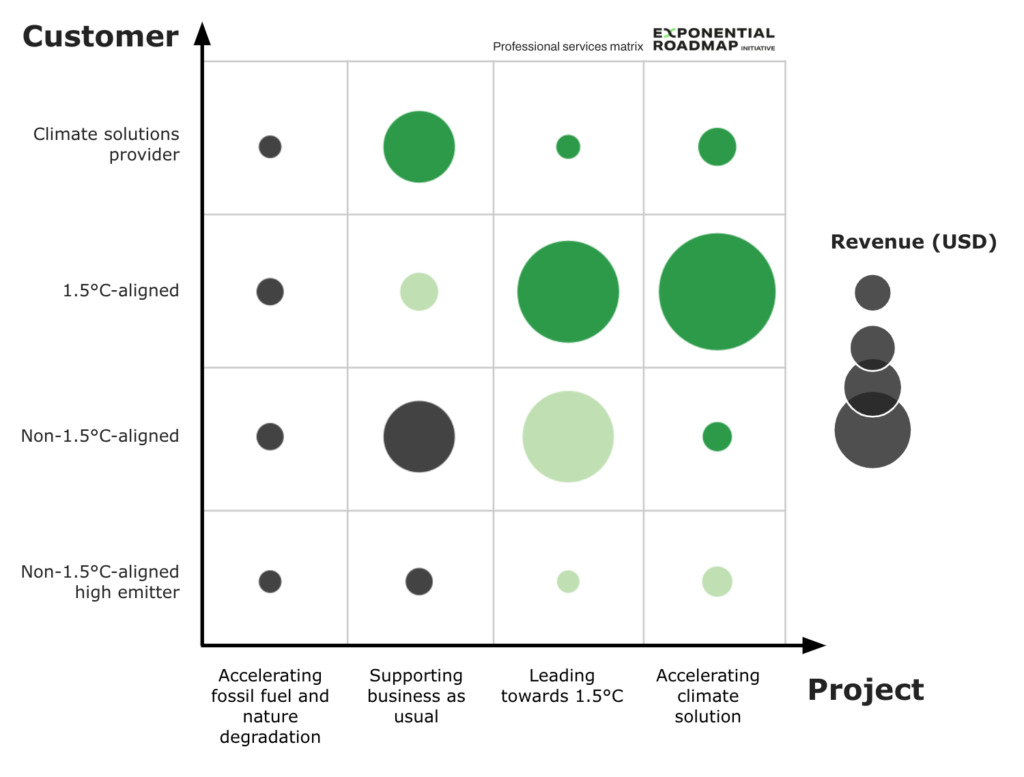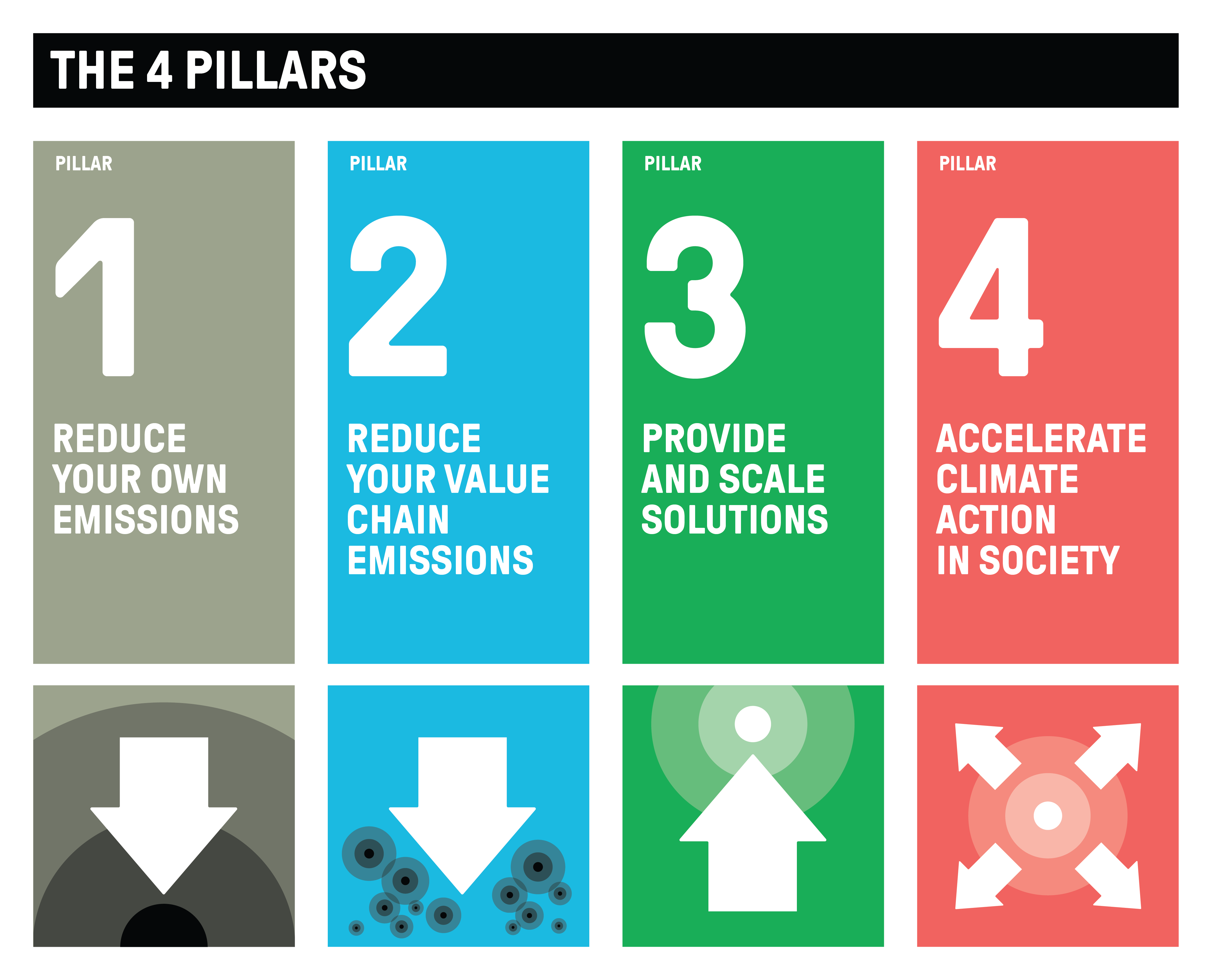Why assess professional services
Consulting and marketing firms and other professional services providers have relatively small greenhouse gas emissions through their value chain. While it is important that professional services providers reduce these emissions in their inventory, it is also crucial that they address their biggest climate impact stemming from the clients they work with and the projects they work on.
For example, a marketing agency that helps promote renewable energy solutions is driving positive climate action. Conversely, a consulting firm advising a fossil fuel company on expanding its operations indirectly contributes to increased emissions. By selecting certain clients and projects, professional services providers can either advance or thwart the global effort to reduce emissions.
How the PSM helps
The matrix applies four criteria to allow mapping both customers and projects, respectively, along the matrix’ two dimensions. For assessing customers, the matrix determines whether the customer is a climate solutions company, a 1-5°C aligned entity, a non-aligned entity or a non-aligned high emitter.

Projects are assessed against whether they accelerate deforestation or fossil fuel expansion at one end of the spectrum, or whether they accelerate climate solutions, on the other end of the spectrum. Circles in different sizes represent the revenue associated with each customer and project, making for easy visualisation of where the professional services provider stands with regard to the climate alignment of its customers and projects. The matrix thus increases internal transparency and enables easy monitoring of progress.
Strategically using the PSM
The Professional Services Matrix lends itself as a strategic tool for assessing the current project portfolio, setting targets and growth/divestment strategies, making informed decisions about the continuing or discontinuing certain customers and projects, and acquiring new customers and projects. The matrix is designed for application by strategic decision- makers within professional services companies, including business leaders and sustainability managers.

The assessment using the Professional Services Matrix lays the groundwork for integrating climate and nature into business strategies, which is part of the third pillar – provide and scale solutions – represented in the 1.5°C Business Playbook.
What our partners say
Latest news
New coalition: the Nordic Climate Advisory Group
Today marks the launch of the Nordic Climate Advisory Group, a coalition founded by the Exponential Roadmap Initiative together with leading climate consultancies in the Nordics.
Urgent for Nations to Press Pause on Deep Seabed Mining
As the race for minerals intensifies, the deep sea—one of Earth’s most mysterious and fragile ecosystems—finds itself in the crosshairs. As governments meet at the International Seabed Authority Assembly this week, the conservation of our planet’s most pristine ecosystem, the deep sea, must be a paramount priority writes Johan Falk (ERI) and Jessica Battle (WWF).
From targets to transition: How NDCs can help align ambition between governments and business
As countries prepare to update their national climate targets ahead of COP30, the Exponential Roadmap Initiative, together with IKEA and Unilever, is working to ensure these targets are actionable and aligned with what businesses need to drive real progress. Listen to a timely conversation from the SB62 gathering in Bonn.









